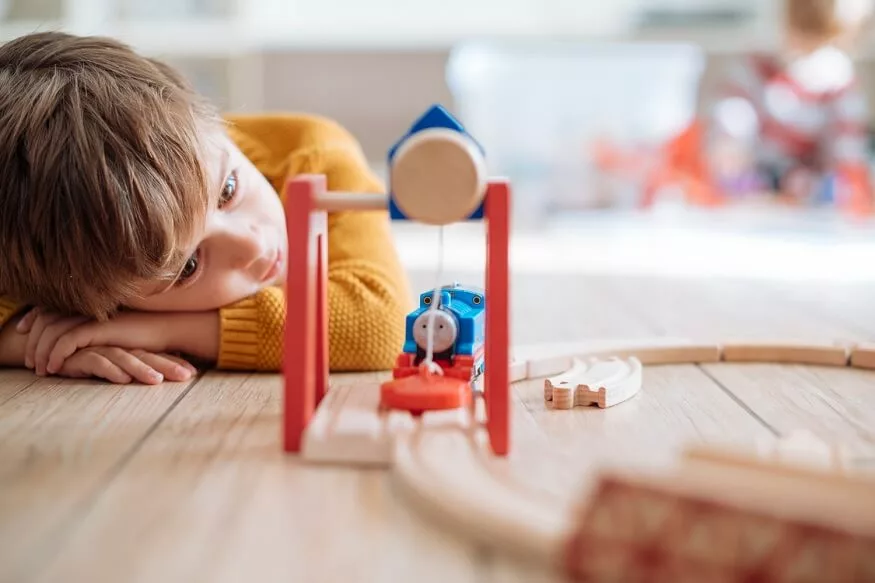Understanding infant developmental milestones is crucial for gauging the healthy growth of your child. However, when these milestones are delayed, it can be a source of concern for parents. In this article, we will explore how to identify delayed developmental milestones, and what steps you can take if you suspect your preschooler may be experiencing delays.
Identifying Delayed Developmental Milestones
Here are some key areas to observe and signs that may indicate delayed development:
Motor Skills
- Fine Motor Skills: Watch for delays in activities such as grasping objects, holding a spoon, or picking up small items. A child with delayed fine motor skills might struggle with tasks like buttoning clothes or using scissors.
- Gross Motor Skills: Pay attention to delays in activities such as crawling, walking, or jumping. A child with delayed gross motor skills might have difficulty coordinating movements or maintaining balance.
Language Development
- Speech and Vocabulary: Note if your child is having trouble forming words, putting together sentences, or expanding their vocabulary. Delays in language development can affect communication and social interactions.
- Non-Verbal Communication: Observing how your child uses gestures, facial expressions, and other non-verbal cues can provide insights into their communication abilities.
Social and Emotional Skills
- Social Interaction: Consider how your child interacts with peers and adults. A child with delayed social skills may struggle with making friends, sharing, or taking turns.
- Emotional Regulation: Pay attention to your child’s ability to manage and express their emotions. Delayed emotional development may manifest as frequent tantrums or difficulty calming down.
Cognitive Abilities
- Problem-Solving: Observe how your child tackles problems or puzzles. Delays in cognitive development may be evident if your child struggles with basic problem-solving tasks appropriate for their age.
- Memory and Attention: Notice if your child has difficulty remembering information or maintaining focus on an activity.
Sensory Processing Issues
- Pay attention to your child’s response to sensory stimuli. Some children may experience delays in sensory processing, leading to aversions or sensitivities to certain textures, sounds, or lights. Consult with healthcare professionals if you notice your child displaying extreme reactions or discomfort in response to sensory inputs.
Regression in Skills
- Take note if your child regresses in previously acquired skills. For instance, if they were once able to speak in sentences but have regressed to using fewer words or have lost interest in activities they once enjoyed, it could be a sign of delayed development. Regression can be an important indicator that warrants further investigation.
Difficulty with Transitions
- Watch how your child manages transitions between activities or changes in routine. Difficulty adapting to new situations or transitions can be indicative of challenges in executive functioning and may suggest areas of delayed development that require attention.
Limited Social Imitation
- Observe your child’s ability to imitate social behaviours. Imitation is a crucial aspect of social development. If your child demonstrates limited interest or ability to imitate gestures, facial expressions, or play activities of others, it could signal delays in social and communication skills.
Expressive Language Delays
- Beyond vocabulary and sentence formation, pay attention to the complexity and richness of your child’s expressive language. Delays may manifest not only in the number of words used but also in the ability to express thoughts, emotions, and needs clearly.
Difficulty with Play Skills
- Evaluate how your child engages in play, both independently and with others. Delays in play skills can manifest as challenges in imaginative or cooperative play. Notice whether your child struggles to initiate play, share toys, or engage in age-appropriate make-believe scenarios.
Challenges with Self-Help Skills
- Assess your child’s progress in acquiring self-help skills. These include tasks such as dressing, feeding, and toileting. Delays in these areas can impact a child’s independence and overall development. If your child faces persistent challenges with self-help skills, it’s advisable to seek professional guidance.
Also Read: Top Developmental Milestones That Every Child Should Reach
What to Do If You Suspect Delayed Development
If you notice persistent delays in your child’s developmental milestones, it’s essential to take proactive steps. Here are some recommendations:
- Consult with Healthcare Professionals: Schedule an appointment with your child’s paediatrician. They can conduct a thorough assessment, considering your child’s medical history, family history, and any potential risk factors.
- Parental Involvement: Work closely with healthcare professionals and therapists to implement strategies at home that support your child’s development. Consistent and positive parental involvement is key to reinforcing the progress achieved through interventions.
- Monitor Progress: Keep track of your child’s progress as they receive interventions. Regular assessments and communication with healthcare professionals will help gauge the effectiveness of the strategies employed.
- Create a Supportive Environment: Foster a nurturing and stimulating environment at home. Encourage activities that promote development in areas of concern and celebrate small achievements along the way.
- Seek a Second Opinion: If you have concerns about your child’s development and the initial assessment doesn’t provide clarity, don’t hesitate to seek a second opinion. Another healthcare professional may offer a fresh perspective, potentially uncovering additional insights or alternative approaches to addressing the delays.
- Connect with Support Groups: Joining support groups or online communities for parents facing similar challenges can provide valuable emotional support and practical advice. Sharing experiences with others who have navigated or are navigating similar journeys can be both comforting and informative.
- Educate Yourself: Take the initiative to educate yourself about the specific developmental delays your child is experiencing. Understanding the underlying causes and potential interventions can empower you as a parent to actively contribute to your child’s progress and advocate for their needs.
- Encourage Play-Based Learning: Integrate play-based learning activities into your daily routine. Play is a powerful tool for children’s development, stimulating various skills such as creativity, problem-solving, and social interaction. Engaging in interactive and age-appropriate games can make the learning process enjoyable for your child.
- Explore Holistic Approaches: Consider holistic approaches that complement traditional interventions. Practices such as music therapy, art therapy, or yoga may contribute to your child’s overall well-being and development. Discuss these options with your healthcare professionals to determine their suitability for your child’s unique needs.
Also Read: Growth Milestones and Nutritional Needs: Tracking optimal physical and mental growth in kids
Identifying delayed developmental milestones in your preschooler can be a challenging experience, but early intervention and support can make a significant difference in their journey. EuroSchool understands the significance of infant developmental milestones and provides a foundation for recognising when a child may be experiencing delays.









